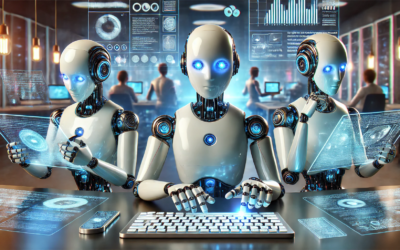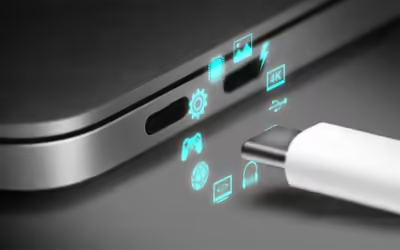Artificial intelligence (AI) is revolutionizing the video game industry, pushing the boundaries of game development, design, and interactivity. AI-generated video games, created partially or entirely using AI-driven tools, are becoming increasingly common. This shift raises an important question: Are game developers at risk of being replaced by AI, or does AI serve as a powerful tool to enhance creativity and efficiency?
The Evolution of AI in Game Development
AI has played a role in gaming for decades, from simple NPC behavior algorithms in early arcade games to sophisticated procedural generation systems in modern open-world titles. However, recent advancements in AI, including machine learning and neural networks, have introduced new capabilities such as:
- Procedural Content Generation (PCG): AI can generate vast landscapes, levels, and assets, reducing manual design time.
- AI-Driven NPCs: More lifelike and reactive NPCs enhance immersion and dynamic storytelling.
- Automated Code Generation: AI-assisted coding tools like GitHub Copilot and OpenAI’s Codex can speed up game development by assisting developers with scripting and debugging.
- AI Art and Animation: AI tools like Stable Diffusion and DALL·E can generate character designs, textures, and animations with minimal human input.
AI-Generated Games: A New Frontier
Developers and researchers are experimenting with AI-generated video games, where AI autonomously creates entire game worlds, mechanics, and narratives. Some notable examples include:
- AI Dungeon: A text-based RPG powered by GPT-based AI, allowing limitless storytelling possibilities.
- NetHack Learning Environment: AI models trained to navigate and play complex roguelike games.
- GAN-based Level Design: AI-generated levels in games like “Mario AI Framework” showcase AI’s potential to create playable content on the fly.
These innovations point toward a future where AI can craft full-fledged games with minimal human intervention. But what does this mean for human developers?
Are Game Developers at Risk?
Potential Job Displacement
AI’s ability to generate assets, code, and design levels may lead to fewer job opportunities in specific areas of game development, such as:
- Junior-level positions: Entry-level game designers and artists might find fewer job openings as AI automates repetitive tasks.
- Procedural content creators: AI can generate game maps, dungeons, and quests, potentially reducing the need for manual level design.
Opportunities for Collaboration
Despite concerns, AI is more likely to become a powerful tool rather than a replacement for developers. Key benefits include:
- Enhanced productivity: AI speeds up tedious processes, allowing developers to focus on creative and complex tasks.
- Lower development costs: Small studios and indie developers can use AI-generated assets and code to compete with larger companies.
- Personalized gaming experiences: AI can generate dynamic content tailored to individual players, opening new possibilities for game design.
The Ethical and Creative Concerns
The rise of AI in game development also brings ethical and creative concerns, such as:
- Originality vs. automation: Will AI-generated content feel repetitive or lack a human touch?
- Intellectual property issues: Who owns AI-generated assets? Can AI-generated art infringe on existing copyrights?
- Job market shifts: How will industry professionals adapt to the increasing use of AI?
The Future of AI in Game Development
Rather than replacing game developers, AI is likely to reshape their roles. Future developers will need skills in:
- AI-assisted design and programming
- Creative direction and storytelling
- Ethical AI use and content moderation
Studios that embrace AI while maintaining human creativity will thrive, leading to new hybrid workflows that enhance the gaming experience.
Conclusion
AI-generated video games are on the rise, but they are unlikely to render human developers obsolete. Instead, AI is poised to become a transformative tool that streamlines development, lowers costs, and enables new creative possibilities. The key challenge for developers is to adapt, leveraging AI’s strengths while preserving the artistry and innovation that define great games.



